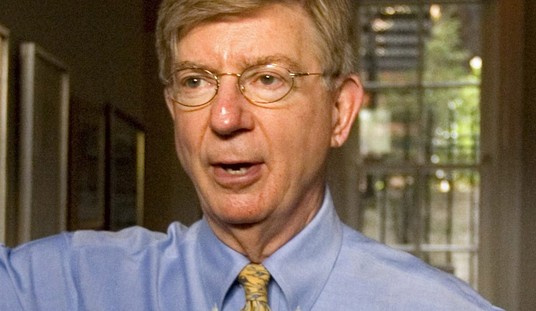Peggy Noonan on “Government by Freakout:”
The president’s sequester strategy is like Howard Beale in “Network”: “Woe is us. . . . And woe is us! We’re in a lot of trouble!”
It is always cliffs, ceilings and looming catastrophes with Barack Obama. It is always government by freakout.
As Noonan writes, “Mr. Obama has finally hit on his own version of national unity: Everyone get scared together:”
And so far this seems to be working fine for him. A USA Today/Pew Research Center poll out this week reported half the respondents said it will be the Republicans’ fault if the sequester goes through. Only a third said they’d blame the president.
So it’s tempting to see this moment as part of the continuing saga of Obama Triumphant. But I’m not so sure. Short-term you can win the way the president wins, but long-term? No, that’s not the way to go.
Because government by freakout carries a price. It wears people down. It doesn’t inject a sense of energy, purpose or confidence in those who do business in America, it does the opposite. The other day I was in a Wal-Mart in southern Florida. It was Sunday afternoon on a holiday weekend but even accounting for that the mood and look of the place was different from what it was two and five years ago. Then, things seemed dynamic—what buys, what an array of products, what bustle in the aisles. This time it seemed tired, frayed, with fewer families and scarcer employees. It looked like a diorama of the Great Recession. What effect do all the successive fiscal cliffs, ceilings and sequesters, have on public confidence? On the public’s spirit? They only add to the sense that Washington is dysfunctional and cannot possibly help us out of the mire.
It shows the world we lurch from crisis to crisis by habit now. This makes us look incapable and beset.
Read the whole thing. Noonan’s description of Mr. Obama attempting to govern by freakout sounds very much like Julia Cameron’s definition of a “crazymaker” in her 1992 self-help book, The Artist’s Way. (Cameron was originally married to Martin Scorsese; two guesses as to which director she’s defining as a “crazymaker” here. It’s easy if you know your early 1980s filmmaking history):
I am thinking of a movie set I visited several years ago. The filmmaker was one of the giants of American cinema. His stature was unmistakable, and so was his identity as a crazymaker. Given that all filmmaking is demanding, his sets are far more so: longer hours; long bouts of paranoia; intrigue and internecine politics. Amid rumors that the set was bugged, this Crazymaker King addressed his actors over a loudspeaker system while he, like the Wizard of Oz, secreted himself away in a large and luxuriously equipped trailer cave.
Over the past two decades, I have watched many directors at work. I was married to a profoundly gifted director, and I have directed a feature myself I have often remarked how closely a film crew resembles an extended family. In the case of this Crazymaker King, the crew resembled nothing so much as an alcoholic family: the alcoholic drinker (thinker) surrounded by his tiptoeing enablers, all pretending that his outsized ego and its concomitant demands were normal.
On that crazymaker’s set, the production lurched off schedule and over budget from king baby’s unreasonable demands. A film crew is essentially a crew of experts, and to watch these estimable experts become disheartened was a strong lesson for me in the poisonous power of crazymaking. Brilliant set designers, costume designers, sound engineers— not to mention actors— became increasingly injured as the production ran its devastating course. It was against the crazymaking director’s personal dramas that they struggled to create the drama that was meant to go onscreen. Like all good movie people, this crew was willing to work long hours for good work. What discouraged them was working those hours in the service of ego instead of art.
The crazymaking dynamic is grounded in power, and so any group of people can function as an energy system to be exploited and drained. Crazymakers can be found in almost any setting, in almost any art form. Fame may help to create them, but since they feed on power, any power source will do. Although quite frequently crazymakers are found among the rich and famous, they are common even among commoners. Right in the nuclear family (there’s a reason we use that word), a resident crazymaker may often be found pitting family member against family member, undercutting anyone’s agenda but his or her own.
Which sounds very much like a POTUS we all know, doesn’t it?
Update: Hey, remember back in 2008 when he was known as “No-drama Obama?” Good times, good times.










Join the conversation as a VIP Member